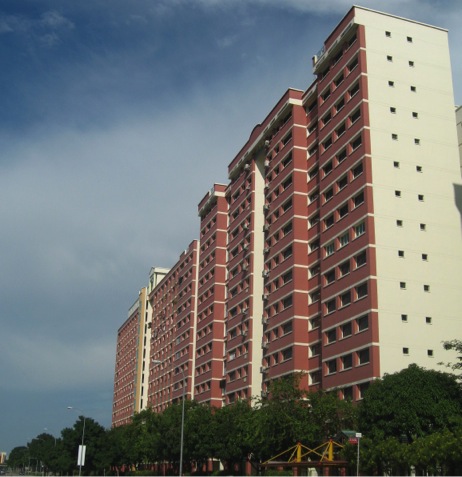-
Advocacy Theme
-
Tags
- Abortion
- Adoption
- Caregiving
- CEDAW
- Disability
- Domestic Violence
- Domestic Workers
- Harassment
- Healthcare
- Housing
- International/Regional Work
- Maintenance
- Media
- Migrant Spouses
- Migrant Workers
- Muslim Law
- National budget
- Parental Leave
- Parenthood
- Polygamy
- Population
- Race and religion
- Sexual Violence
- Sexuality Education
- Single Parents
- Social Support
- Sterilisation
- Women's Charter
Roundtable: Where Do I Live Now? Housing Issues Confronting Singaporean Divorcees
March 20th, 2015 | Children and Young People, Family and Divorce, News, Poverty and Inequality
On 12 March, Dr Sharon Quah from the Asia Research Institute delivered a roundtable presentation at AWARE, discussing housing issues confronting Singaporean divorcees. Based on her interviews with 30 divorced Singapore women who sought access to public housing after divorce, she suggested that HDB policies disadvantaged divorced women.
 In Where Do I Live Now?, she explained her concept of the divorce biography. She argues that upon undergoing marital breakdown, divorcees go through a process in which existential questions are confronted and the divorcee learns to redefine herself as a newly single person. Despite common assumptions that divorce is damaging, it can in fact be an opportunity to renegotiate choice and autonomy in ones life, form personal communities and pursue productivity. While crafting such a divorce biography, a divorcee may set goals and make future plans.
In Where Do I Live Now?, she explained her concept of the divorce biography. She argues that upon undergoing marital breakdown, divorcees go through a process in which existential questions are confronted and the divorcee learns to redefine herself as a newly single person. Despite common assumptions that divorce is damaging, it can in fact be an opportunity to renegotiate choice and autonomy in ones life, form personal communities and pursue productivity. While crafting such a divorce biography, a divorcee may set goals and make future plans.
How does the concept of the divorce biography relate to housing policy? Dr Quah suggested that although there is no standard divorce story, housing is often an important aspect of the divorce biography. HDB policies can play a problematic role here.
First, HDB flats must be returned after divorce if the occupation period was shorter than five years. Additionally, divorced couples had to pay a penalty charge to the HDB. If there were children, they and their primary caregiver might be allowed to stay in the flat even if the occupation period was shorter than five years. However, this concession is made on a case by case basis. These rules can generate instability and uncertainty for divorcees.
Second, long waiting periods are involved in applying for a new flat. According to HDB rules, mothers with custody, care and control of their children would meet the criteria of a family unit. However, due to financial difficulties and a long waiting period for a flat, occupying ones own flat was often seen as an inaccessible or faraway prospect.
Moreover, the fact that housing regulations were complicated and often subject to change often increased the sense of confusion. An audience member who was divorced some years back bore testimony to the incredible amount of effort it took to negotiate HDB rules, saying, I kept pressing the authorities until they finally granted me a rental flat even though they were reluctant to give it to me in the first place. I just had to do it because I didnt have any other options. I couldnt stay with my parents since they [and my siblings] were occupying all the rooms… I went down to the HDB every day.
Divorced women who could not move back into their family homes after divorce suffered the most. Dr Quah cited some of her respondents circumstances, suggesting that lack of space, family estrangement, or even simple preference (on either the divorcees or their families part) were common reasons moving back into a family home was not an option for these women.
In one case, one of her respondents had so little choice that she moved back into a flat with her ex-husband and ex-mother-in-law. The ex-mother-in-law did not seem to acknowledge that the respondent was no longer married to her son, and continued to expect the respondent to perform the duties that she had performed as a daughter-in-law.
During the discussion, several related issues were brought up. These included the lack of special housing provisions for victims of domestic violence, beyond shelters, which provided only the most interim form of housing assistance. It was also pointed out that lack of housing stability would adversely impact the children of such divorces, resulting in educational disruption and emotional upheaval. Dr Quah acknowledged this, although she was unable to provide more insight on this consequence of housing policy as her research had predominantly focused on the divorced women in question.
In any case, it is clear that housing policy needs to be reformed to better address the needs of divorcees, given the rising divorce rate. Dr Quah noted, When asked about how they wish their divorce biographies had been better, respondents always referred to some aspect of policy change, especially shorter waiting times for flats.



